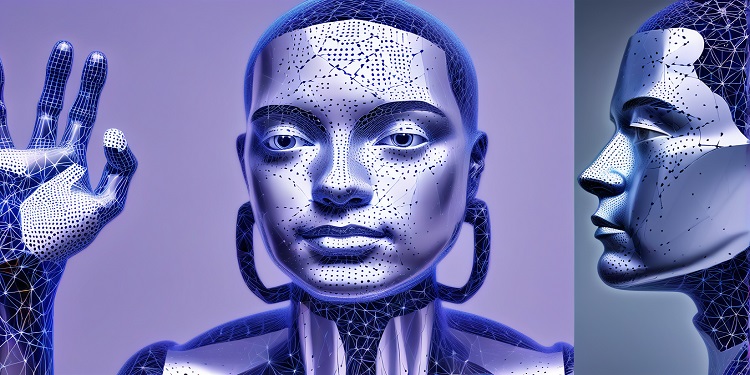 Transform Group founder Michael Terpin believes that bitcoin is where the internet was in 1997 and that its price will reach half a million dollars within the next decade. He said that cryptocurrencies are here to stay and that coins such as Bitcoin and Ether are not fraudulent schemes. Among the topics he discussed were India’s decision to prohibit private cryptocurrencies, as well as the top three trends in the cryptocurrency market.
Transform Group founder Michael Terpin believes that bitcoin is where the internet was in 1997 and that its price will reach half a million dollars within the next decade. He said that cryptocurrencies are here to stay and that coins such as Bitcoin and Ether are not fraudulent schemes. Among the topics he discussed were India’s decision to prohibit private cryptocurrencies, as well as the top three trends in the cryptocurrency market.
Bitcoin will reach half a million users in the next ten years, and a vast majority of the world’s population will be using digital currencies within the next two decades, according to the founder of Transform Group, Michael Terpin. Terpin added that cryptocurrencies are where the internet was in 1997 when he made the statement.
When speaking with the author, Terpin, who also co-founded BitAngels, the world’s first angel network for digital currency businesses, indicated that outright banning cryptocurrencies by any government would be difficult and that the internet would have to be shut down in order for that to happen.
“Cryptocurrencies are here to stay,” says the author.” Bitcoin and Ether are not a fraud, as many people believe. They are the most risk-free method of entering the market. You have the option to retain and store them for future value and sell them anytime you wish. They may function as a savings account. In reality, cryptocurrencies are still at the same point in time as the internet in 1997. There is still a great deal of development to be done. Even cryptocurrency wallets will be subject to modifications. Examine Bitcoin, which was worth around $5 in 2011 and is currently worth $55,000. In the following ten years, it will have reached half a million. “By the year 2050, cryptocurrencies will be used by the great majority of the world’s population,” he said.
The co-founder of Aspire, a blockchain-based asset creation platform, also said that if governments impose too burdensome laws, people would just disregard them and continue to use cryptocurrencies. For example, Nigeria prohibited cryptocurrencies, but their popularity has not decreased.
“It is impossible to outright prohibit the use of cryptocurrencies. It would be necessary to turn off the internet in order to do this. Governments don’t appreciate being ignored, and neither do citizens. At the end of the day, it will most likely do what is in its best interests, such as taxing or adopting children. Overregulation is also detrimental to the development of a new sector.
When it comes to the automotive industry, for example, the earliest years were slowed by restrictions such as the necessity of a man to wave a red flag to warn people of an approaching vehicle, which was partially responsible for the sluggish growth. For the most part, overregulation would impede the development of the cryptocurrency business,” he said.
When asked to identify the top three trends in the cryptocurrency sector, Terpin said that adoption in developing markets is one trend, with nations such as El Salvador and Argentina, where a high degree of inflation has been an issue, converting to bitcoin as a result.
“I think that cryptocurrencies will signal the end of the power of the United States, the G20, and the European Union on developing economies,” Terpin said.
According to Terpin, the second trend is that DeFi is revolutionizing the financial industry by removing middlemen such as banks and brokers. “In the future, financial markets will also join the revolution and provide ‘DeFi funds.’ “Those who save in DeFi earn a high rate of interest, while those who borrow in DeFi marketplaces may do so at cheap interest rates. Approximately $70 billion has been committed to the definance markets, with the total expected to reach $1 trillion in the next 10 years,” he stated.
The third emerging trend is non-fiat currencies (NFTs), which have witnessed a 1,000 percent increase in the past year, outpacing even bitcoin. “Non-profit organisations (NFTs) are transforming the way artists make money. NFTs have removed the need for intermediaries in the sector, such as agents. Artists have taken the initiative to become their own distributors, contacting customers directly. The internet has given authors more power. Artists will now be empowered by NFTs.”
When asked to comment on criticisms that cryptocurrency mining is unsustainable from an environmental standpoint, Terpin stated that over 70% of the mining is done using renewable energy, which is the cleanest and least expensive form of energy available, and that ATMs and gold mining consume more electricity than crypto mining. “In reality, there are bitcoin miners who are also making money by selling their excess energy back to the power system,” he said.
Regarding the future of cryptocurrencies in India, a country with poor financial and digital literacy, particularly in rural areas, Terpin said, “I am certain that at least one person in a hamlet has a smartphone and active internet connection. That is all that is required. He or she may act as a cryptocurrency advocate, educating the villagers about cryptocurrencies. Furthermore, I think that the big Indian diaspora may contribute to the growth of cryptocurrencies in India if people begin to send remittances through cryptocurrency.”








